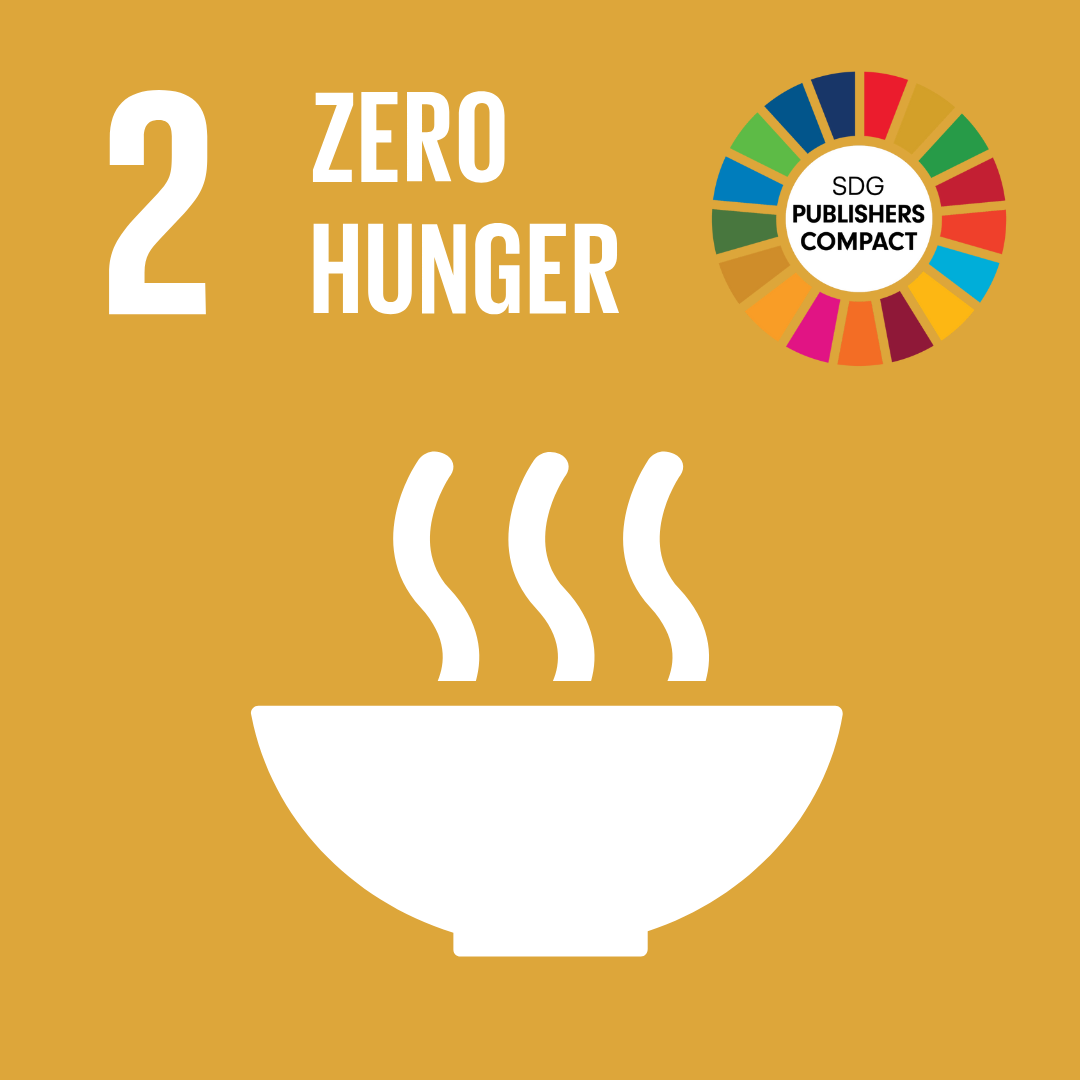Abstract
Objective: This paper aims to assess the progress and challenges associated with Sustainable Development Goal 2 (Zero Hunger), focusing on the eradication of hunger and malnutrition, and the implementation of resilient food systems by 2030.
Method: A review of secondary data from published literature and United Nations reports was conducted. The analysis compares global food security trends, examines the root causes of hunger, and discusses mechanisms to achieve the Zero Hunger goal.
Results: Despite global efforts, hunger and food insecurity have increased in recent years, with 690 million people affected. Key challenges include climate change, conflicts, and the socio-economic impacts of the COVID-19 pandemic. The data suggest that agricultural investments, gender equality in resource access, and social protection programs are essential for reducing hunger and achieving sustainable food systems.
Conclusions: Achieving Zero Hunger by 2030 requires concerted global efforts, particularly in developing countries. Immediate actions must be taken to strengthen food supply chains, promote agricultural productivity, and address the vulnerabilities exacerbated by recent crises. Continued focus on gender equality and climate-resilient agriculture is crucial for long-term food security.
References
Adegbami, A. and Adesanmi, O. (2018): Nigeria’s Educational System and Sustainable Development Goals’ Attainment: ‘A Wild Goose Chase’. Journal of Contemporary Asia 5 (1) pp. 217-233
Adegboye, R. O. (2004), “Land, Agriculture and food security in Nigeria”, Faculty lecture, Faculty of Agriculture, University of Ilorin, Ilorin, Kwara State
Central Bank of Nigeria (2016), “Nigerian gross domestic product composition”, available online at: www.cenbank.org
FAO (1996), “Rome Declaration on World Food Security Summit Action Plan”, World Food Summit 13-17 November 1996. Rome. Pp. 13-17.
Fawole, W.O. (2017), “Assessment of food security situation among households in south western Nigeria Post-MDGs era”, PhD Dissertation, Unpublished
Fawole, W.O., Ozkan, B., and Ayanrinde, F.A. (2016), “Measuring food security status among households in Osun State, Nigeria”, British Food Journal, Vol. 118 No 7, pp. 1554 – 1567.
Food and Agricultural Organization (2017). State of food security and nutrition in the World in 2017: Building Resilience For Peace and Food Security. Food & Agriculture Organization
Gizem Deniz B.B, Aslıhan C. and Kamuran O. (2020): Food Insecurity and Affecting Factors in Households with Children During the Covid-19 Pandemic: A Cross-Sectional Study (Accepted). Disaster Medicine and Public Health Preparedness. DOI: 10.1017/dmp.2021.172
Mamadou, F. and Tara, F.D. (2006), “Persistent hunger: Perspectives on vulnerability, famine, and food security in Sub-Saharan Africa”, Annual Review of Anthropology, Vol. 35,pp. 521-538.
Martin, R. R. (2004), “Food Aid”, African Security Review, Vol. 13 No. 1, pp. 83-89 Ogundari, K. (2013), “Determinants of food-poverty states and the demand for dietary diversity in Nigeria”, Contributed paper prepared for presentation at the 4th International Conference of the African Association of Agricultural economist (AAAE), Cape Town, Hammamet, Tunisia, 22 - 25 September, 2013.
Ogundari, K. (2017), “Categorizing households into different food poverty levels in Nigeria: The socio-economic and demographic determinants”, Agricultural and Food Economics, 5:8, pp. 1 – 20. DOI: 10.1186/s40100-017-0076-y
Olanike, D., William, S. and Deji, S. (2007), “Socio-cultural factors influencing the feminization of HIV/AIDS in the rural area of Nigeria: Implication of food security”, Research Journal of Social Sciences, Vol. 2, pp. 7-13.
Sanusi, R. A., Badejo, C. A. and Yusuf, B. O. (2006), “Measuring Household Food Insecurity in Selected Local Government Areas of Lagos and Ibadan, Nigeria”, Pakistan Journal of Nutrition, Vol. 5 No. 1, pp. 62-67
United Nations (1975), “World Food Summit”, 1974, Rome, Italy, 5-16 November 1974. New York, available online at: www.fao.org
Wu, W., Yanga, P., Tanga, H., Youd, L., Zhoua, Q., Chena, Z. and Shibasaki, R. (2011), “Global-scale assessment of potential future risks of food insecurity”, Journal of Risk Research, 14:9, 1143-1160, DOI: 10.1080/13669877.2011.57179.

This work is licensed under a Creative Commons Attribution 4.0 International License.


